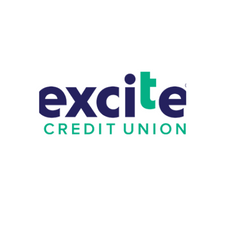History, they say, is written by the winners. But that’s not necessarily the case when it comes to challenger brands. In many cases, challenger brands not only find a way to coexist alongside their larger competitors, but they’re also able to dramatically alter the marketplace in their own way, forcing the established leaders to change themselves. Here are ten challenger brands that are thriving today, thanks in large part to them questioning the status quo and providing a valuable alternative to their customers.
Under Armour (sporting goods)
What do Stephen Curry, Jordan Spieth, and The Rock have in common? They’re the most famous celebrities in their respective fields – and they’re all under contract to Under Armour. It’s not easy to take on an established giant like Nike, but Under Armour has the celebrity clout and popularity among young people to stand up to the industry leaders. Under Armour also owns MyFitnessPal, the world’s most popular food tracking app.
MLS (professional sports)
Soccer is the most popular sport worldwide, but it’s only in the past decade that soccer’s popularity has exploded in the United States. Major League Soccer (MLS) has propelled that surge by promoting popular American players and providing an affordable and engaging fan experience. While other American leagues focus mostly on their TV product, MLS simply wants to get fans to check out a game in person and encourage them to become active supporters.
Inkkas (shoes)
It’s become increasingly popular for businesses to promote their ethics alongside their products. Inkkas shoes not only feature eye-popping designs inspired by footwear around the globe, but they’re also hand-crafted in South America. That’s important because Inkkas helps to support those very areas that create their shoes; a tree is planted for every pair of Inkkas sold. Inkkas is proving that it’s possible to conduct a sustainable business in a highly competitive industry while simultaneously giving back and helping others.
Casper Mattress (mattresses)
You spend a third of your life on your mattress, and that makes it very difficult for challenger brands. Nobody wants to take a chance on an unheralded mattress when there are so many established names out there. However, those big names are also synonymous with high prices and commission-based purchases. Enter Casper Mattress, who aims to challenge the mattress industry by generating word-of-mouth buzz about their products. Their memory foam-based mattresses can be bought entirely online, without ever having to go into a store and talking to a salesperson. What’s more, the company even offers a 100-day money-back guarantee, enticing the most skeptical consumers to try their mattresses.
Peloton (fitness)
By its very definition, a spin class is something you’d have to physically attend, right? Unfortunately, due to the fast pace of life, a fast-paced workout isn’t always possible, especially when travel time, child care and busy schedules get in the way. That’s why Peloton exists – it brings the workout to you. No matter where you live or what time of day it is, you can hop on your Peloton and take a real spin class with a live instructor. The Peloton bike and its supporting software also capture a ton of metrics so that users can track their progress over time.
The Athletic (online journalism)
There’s no shortage of people looking for content online, but the economics haven’t made sense for most websites. This has resulted in mass layoffs across the journalism industry; it’s also created a culture of click bait and sponsored content that nobody trusts. The Athletic aims to change all of it through its transparent model – aggressively recruit the best sportswriters from every major city, then put them all on one website and charge readers for ad-free access. While some consumers have difficulty justifying paying for something that used to be free, The Athletic’s model is the rare win for everyone – journalists have job security, readers get great exclusive content and the company itself can build a reputation based on uncompromised quality, which is more than can be said for many newspapers and online outlets.
Robinhood (stock trading)
The stock market has always been synonymous with pushy brokers that are more worried about commissions than actually making money for their clients. That’s all changed with Robinhood, an online app that’s done away entirely with trading fees and unscrupulous advice. Robinhood users now get a fully immersive first-hand education into how the stock market works so that they can educate themselves – and therefore become more engaged users with loyalty to the Robinhood platform.
DDP Yoga (fitness)
Fitness programs are a dime a dozen, especially in the digital age, where YouTube is filled with workout videos of all shapes and sizes. How, then, can one expect to make money as a challenger brand – facing the likes of P90x on one level and then free YouTube videos on another? The answer is to provide something completely different on every level, which is where DDP Yoga comes in. More than just yoga, DDP Yoga also incorporates cardio and strength training, but that’s not all. The real value of DDP Yoga comes in its every-man approach – all of the trainers in the workout videos are actual people that lost serious weight thanks to DDP Yoga. Additionally, owner Diamond Dallas Page has launched a series of YouTube videos where he works with broken-down individuals and tries to heal them using his workouts and philosophies.
AirBNB (lodging)
AirBNB has become such a household name that it’s easy to forget that it’s a challenger brand. Taking on an entire industry – especially one as entrenched as hotels – is never easy, but AirBNB uses technology and practicality to its maximum potential. If someone has a spare room, why can’t they rent it out and make a few bucks? And if someone doesn’t mind staying in that spare room, why can’t they do so for less than they’d pay to stay at a hotel? Sometimes it’s the simplest solution that makes the most sense, and it’s why AirBNB has caught on with so many people despite its status as a challenger to the mainstream hospitality industry.
TCL (electronics)
Nobody wants to spend hundreds of dollars on a TV only to find out that they got stuck with a subpar set that needs to be replaced in a year. That’s why so many of us find ourselves paying more for a brand name. But what if there was a company that combined quality and a low price point? That’s what TCL is trying to do in the TV industry. Despite pricing that rivals store brand TVs, TCL televisions are among the highest rated TVs by users on highly influential sites like Amazon and Best Buy. The company is quickly developing a reputation for delivering quality at a reasonable price, and its affiliation with Roku gives buyers a smart TV interface that they actually like. TCL has succeeded in figuring out what people want and identifying ways to give it to them, without compromising on quality.
Challenger brands come in all different forms, but they have one thing in common – they all have one unique spin on the established formula that gives them a fighting chance against the big shots. If you haven’t figured out what makes your challenger brand business unique yet, give us a call.









